Welcome to NAVIGATOR – a project designed to better understand the American public’s views on issues of the day and help advocates, elected officials, and other interested parties understand the language, imagery, and messaging needed to make and win key policy arguments.
This release features findings from a national online survey of 1,013 registered voters conducted June 18-22, 2020.
Key takeaways
- Trump’s approval ratings remain negative across a range of metrics and are deeply underwater among independents.
- The share that thinks the country is “off on the wrong track” has reached a new high, and a majority again feel that the “worst is yet to come” in the coronavirus pandemic.
- Support for more aggressive social distancing is increasing, and those in states with growing numbers of cases feel their state is reopening too quickly.
Trump Approval Underwater on Range of Metrics
Trump’s approval ratings on his handling of his job overall as president, health care, the pandemic, the economy, and responding to the protests following George Floyd’s death remain underwater.
- Among independents, Trump’s job approval overall is at 24% approve/69% disapprove.
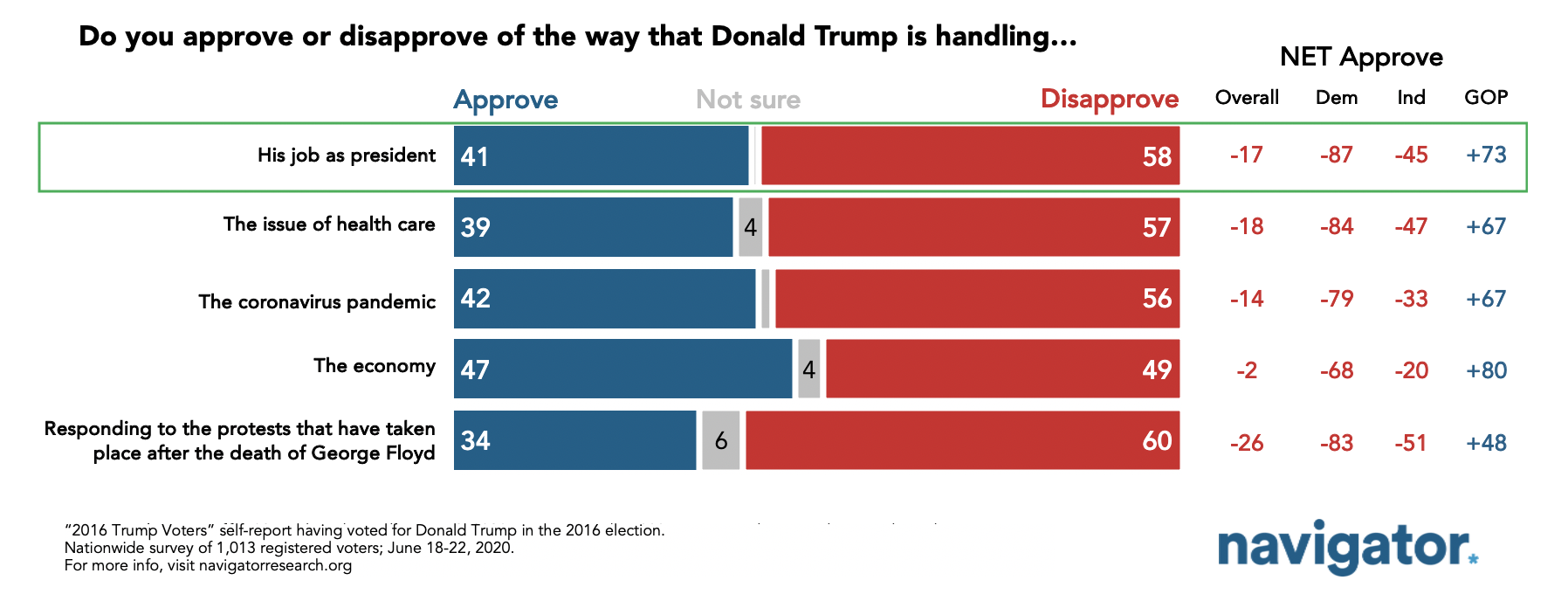
Largest Share Yet Believe Country “On the Wrong Track”
The percentage who think the country is “off on the wrong track” has reached a new high in our tracking since March 23, at nearly three in four Americans.
- Among Republicans, the share who think the country is “off on the wrong track” has grown by 26 points since March 23, from 24% “wrong track” to 50%.
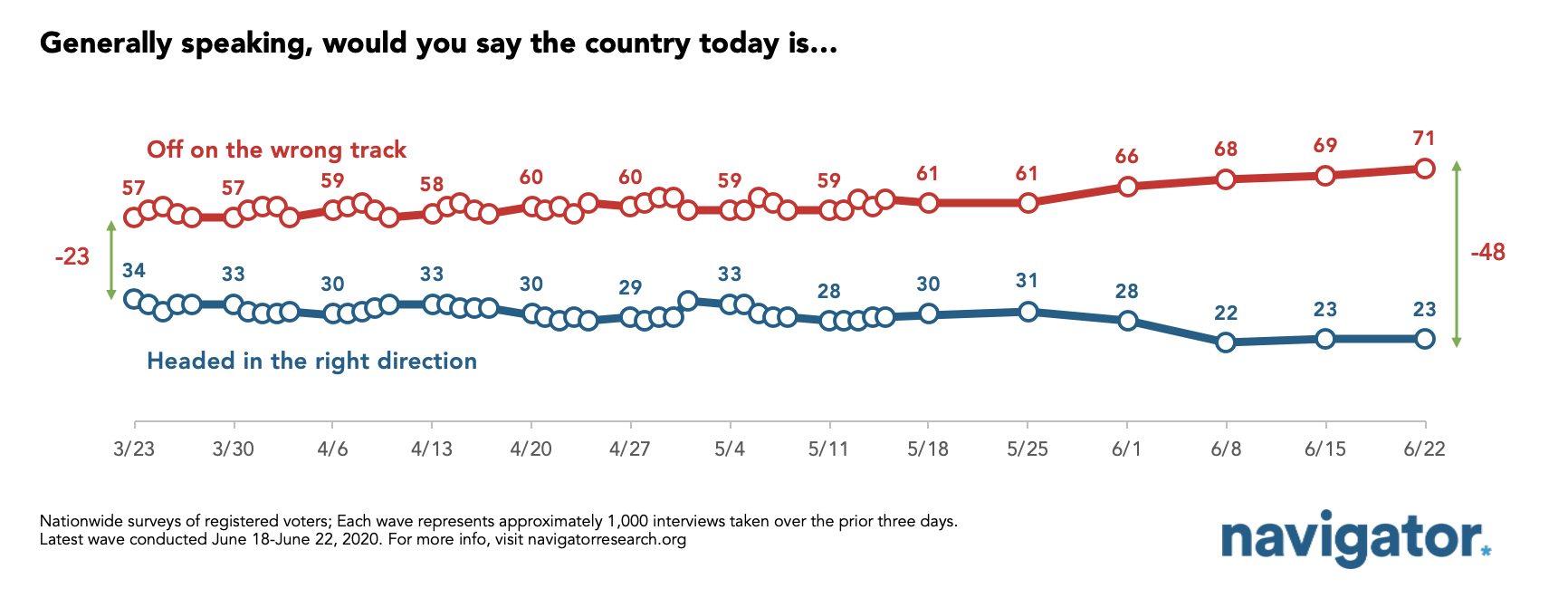
Democratic Advantage on Issues Relating to Health, Pandemic
Democrats in Congress hold a lead over Trump in trust on every issue tested related to the coronavirus pandemic, though their lead is narrower on handling the economic impact.
- Congressional Democrats’ advantage on responding to the coronavirus outbreak has grown 16 points since March 23 (from -6 to +10).
Approval Higher for Democratic Governors & Governors of States Where New Cases are Not Increasing
While a majority still approve of governors at large in their handling of the pandemic, Republican governors and governors in states where new cases are increasing have lower approval ratings than their counterparts.
- Governors of states where new cases are increasing have a net approval rating 21 points lower than governors whose states have rates that are either stable or decreasing.
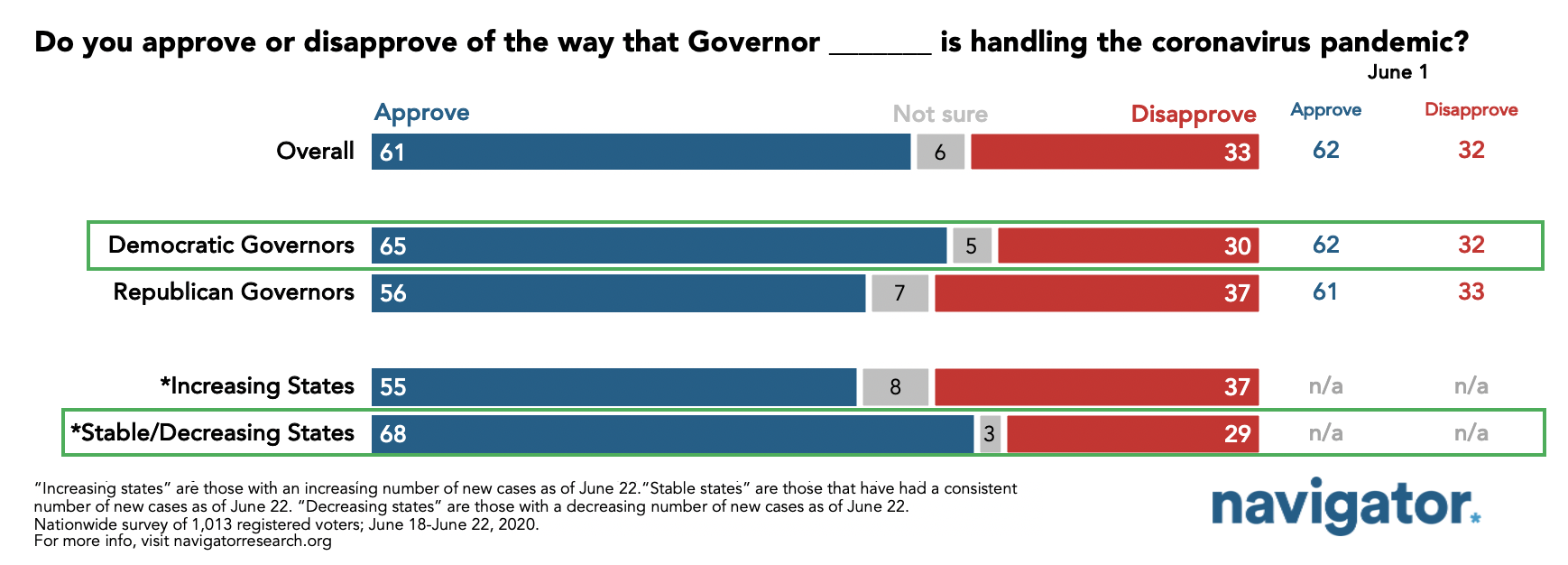
Majority Again Think “Worst is Yet to Come” in Pandemic
For the first time in over a month, a majority believe that the “worst is yet to come” in the pandemic. This is the highest level since May 14.
- Among 2016 Trump voters, 36% believe that the worst is yet to come. When this number reached its low-point on May 5, only 25% of Trump voters said the “worst is yet to come.”
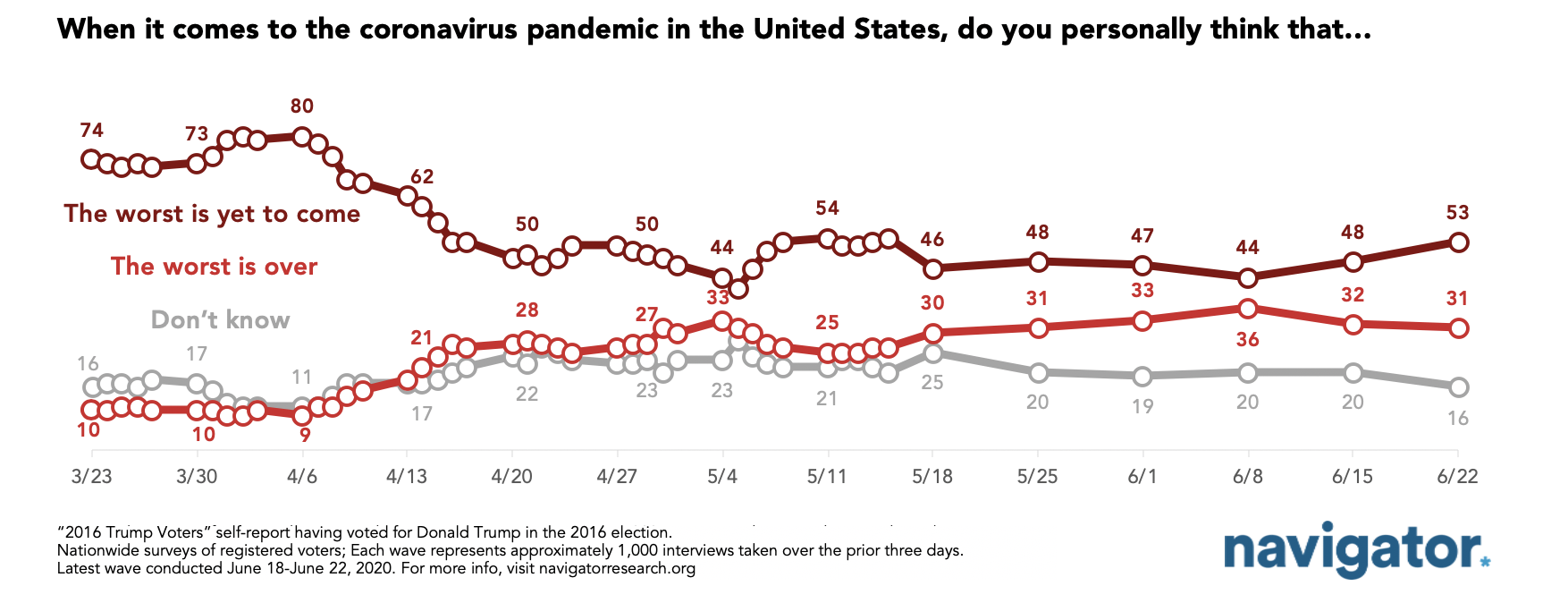
Top Worries: Nursing Homes, Economy in Recession
A top concern for Americans across parties is the vulnerability of nursing homes to coronavirus. Democrats and independents are more concerned about a new surge than are Republicans.
- Worries about states seeing the number of new cases grow fall partially along partisan lines: while 94% of Democrats and 70% of independents are worried, only 55% of Republicans say the same.
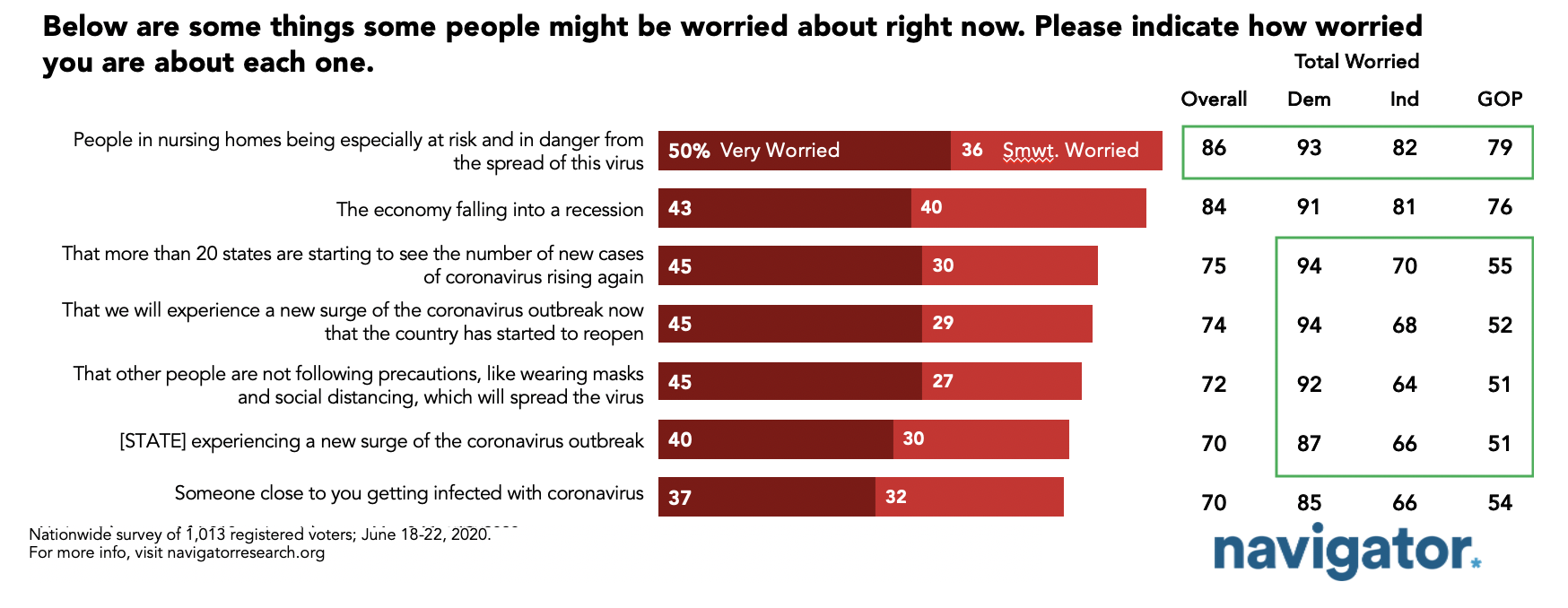
Americans Increasingly Want More Aggressive Social Distancing Measures
The share of Americans who say the country needs more aggressive social distancing measures is at the highest level since April 13th, with two in five now preferring more aggressive social distancing measures.
- On May 18th, there was a 16-point gap between the share who were satisfied with current measures (47%) and those who wanted “more aggressive” social distancing (31%). That gap has flipped 20 points in the other direction with a plurality now preferring more aggressive measures.
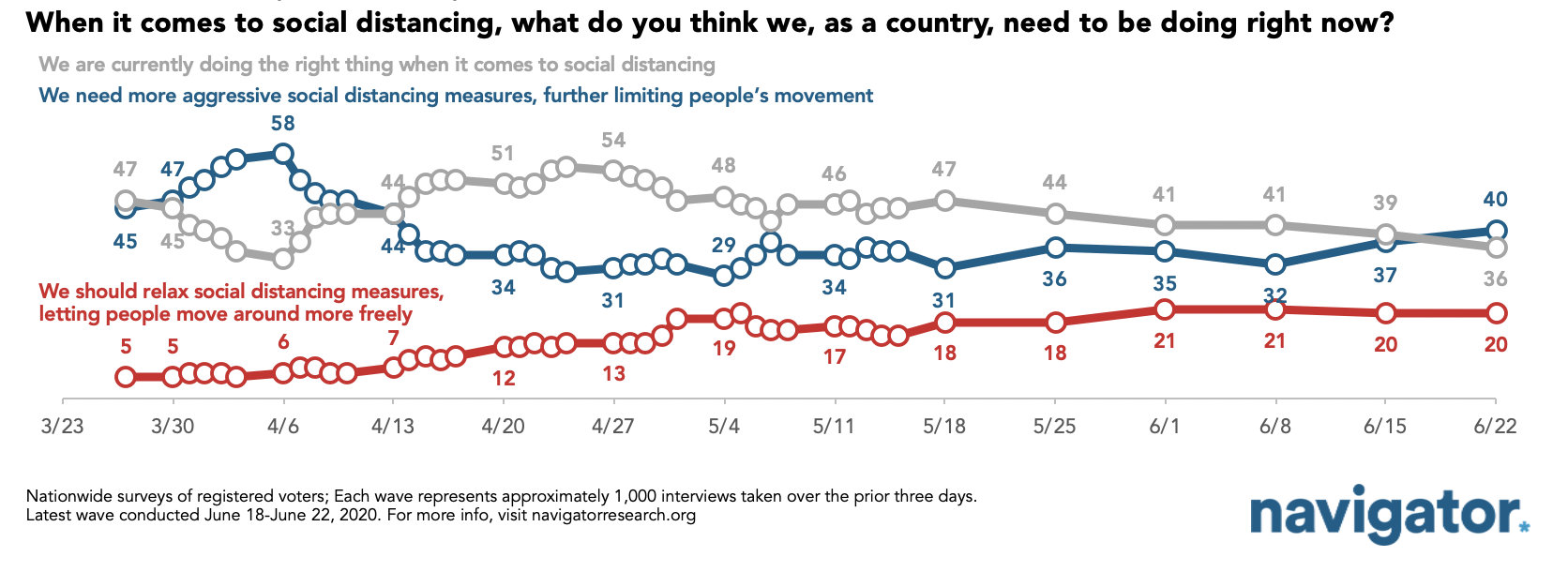
Concern About Reopening Higher in States with Surging Cases
Two in five Americans say their state is moving too quickly on reopening, up 4 points from last week. Nearly half of those in states with growing numbers of new cases say that their state is moving too quickly to reopen.
- On the other hand, in states with decreasing or stable numbers of new cases, a plurality (44%) feel their state is getting the timing about right on reopening.
Americans Appear to Be Keeping Up With Local and National Coronavirus Trends
More than three in five Americans feel the number of new cases in the country is increasing. Among those in states where the number of new cases is growing, two in three are aware.
- Among those in both states where the rate of new cases is declining or stable, a plurality say that the number of new cases is declining.

